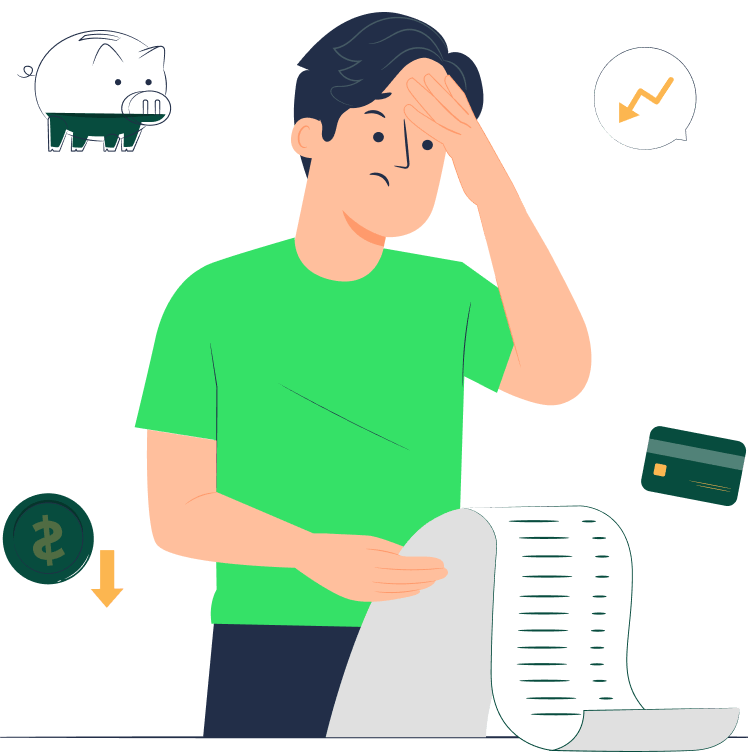 The Best Brokers For Trading CFDs
The Best Brokers For Trading CFDs7 Best CFD Brokers and Trading Platforms
Discover the best CFD brokers with low spreads and advanced platforms, recommended by our team of experts.

 The Best Brokers For Trading CFDs
The Best Brokers For Trading CFDsDiscover the best CFD brokers with low spreads and advanced platforms, recommended by our team of experts.


 A Flexible Trading Option
A Flexible Trading OptionContracts for Difference (CFDs) are financial derivatives that allow traders to speculate on the price movements of various assets without actually owning the underlying asset.
Read More Trade Stocks For Massive Profits
Trade Stocks For Massive ProfitsStock Trading allows you to buy and sell shares of various companies for great profits.
Learn More
 A Firm-Led Trading Practice
A Firm-Led Trading PracticeProp trading has financial firms invest their own money to trade in the financial markets, aiming to generate direct returns.
 Frequently Asked Questions
Frequently Asked QuestionsBefore you dive into trading, read our answers to some of the most common questions asked by the traders starting their journey with us!
Proprietary Trading (Prop Trading) is when a firm uses its own money to trade financial instruments like stocks, bonds, or commodities, aiming to earn full profits instead of just commissions from client trades.
Trading with a prop trading firm gives you significant capital, allowing traders to execute larger positions and strategies without risking their funds. Firms also give access to advanced trading tools, technology, and mentorship to further improve performance. Moreover, traders can take advantage of profit-sharing arrangements, earning significant rewards based on their success.
Cryptocurrency trading often sees sharp and unpredictable fluctuations, which lead to potential losses. The market does not have regulation which puts traders at risk of fraud, scams, and exchange failures. Moreover, technical challenges such as security breaches and lack of knowledge in complex trading mechanisms pose dangers to novice traders.
In proprietary trading, traders are often exposed to high leverage, which increases both gains and losses. Performance pressure can also force traders to make decisions emotionally and increase stress. Additionally, job stability depends heavily on consistent profitability.
Stock trading involves trading a company’s shares, which gives the trader rights such as dividends and voting privileges. In contrast, CFDs (Contracts for Difference) trading involves speculating on the price movement of stocks without owning the underlying asset.
Leverage in trading enables traders to manipulate a larger position with a smaller amount of capital. It uses a margin account where a fraction of the total trade value is needed as collateral. Leverage also magnifies losses which makes risk management crucial.
Trading beginners often trade without a clear strategy, leading to impulsive emotional decisions. They may misuse leverage, taking on excessive risk without understanding potential losses. Poor risk management, such as failing to set stop-loss orders or overtrading, can quickly deplete their capital.
Consider factors such as regulatory compliance, which ensure safety and transparency. Evaluate trading fees, available tools, and account features to match your trading needs and budget. Also, check for reliable customer support, user-friendly interfaces, and access to desired markets.
Proprietary trading firms typically offer profit splits between 50/50 and 80/20, depending on the firm and trader's experience level. Beginner traders start with lower splits, while experienced traders or consistent performers may get greater percentages.
Factors include supply and demand dynamics, token scarcity, or increased adoption. Market sentiment, driven by news, regulations, and social media trends, plays a significant role.
Centralized exchanges are managed by a central authority, such as a central bank or a government department. They offer user-friendly interfaces, high liquidity, and advanced trading tools. However, users are required to trust the platform with their funds and personal data. Decentralized exchanges operate on blockchain networks, giving users full control of their assets and privacy while being more secure. However, they are less beginner-friendly and potentially slower due to network reliance.
Several risks exist when trading with CDSs, such as high leverage and market volatility. Fees like spreads and overnight charges can also diminish profits, making risk management essential.